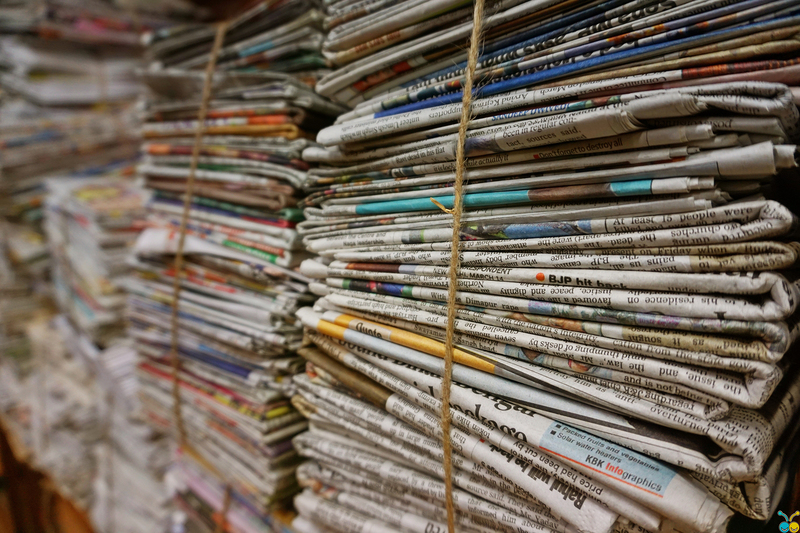New online outlets experiment with podcasts and video and embrace social media. Some of the best-known — such as the analysis site Africa is a Country, or the literary one Brittle Paper — began as personal blogs. They generally reject both the staid habits of mainstream African papers and the narrow preoccupations of much Western writing about the continent. Many are more cultural than political, but most lean left. The outlook is typically pan-African, finding both solidarity and difference with activists elsewhere. Through a series of essays on “the Black Atlantic”, Mr Lawal hopes to “change the perspective on blackness around the world”. The focus, he thinks, tends to be narrowly American.
新的在线媒体尝试播客和视频,并且拥抱社交媒体。其中最著名的一些媒体——如分析网站“非洲是一个国家”,或文学网站“脆纸”——都是从个人博客起家的。他们通常既不使用非洲主流报纸古板保守的习惯,也排斥许多西方媒体对非洲大陆狭隘的成见。许多人更关注文化而非政治,但大多数人是左倾的。态度是典型的泛非洲,与其他地方的活动人士既有团结,也有分歧。通过一系列关于“黑大西洋”的文章,拉瓦尔希望“改变人们对世界各地黑人的看法”。他认为,问题的焦点往往是狭隘的美国人。

These outlets also emphasise the universal interests of African writing. Jennifer Malec, editor of the Johannesburg Review of Books, says it aims “to give a voice to African writers to comment on significant literary works from around the world”. Its latest edition discusses both Manyano, a women’s prayer movement in South Africa, and the influence of Charles Dickens. Bakwa, a literary magazine from Cameroon, has collaborated with a journal in Mexico and ran a series of essays about travelling as an African, with contributions from across the continent.
这些表达途径也强调了非洲写作的普遍兴趣。《约翰内斯堡书评》编辑詹妮弗·马雷克表示,该杂志旨在“让非洲作家能够对世界各地的重要文学作品发表评论”。它的最新一期讨论了南非妇女祈祷运动Manyano和查尔斯·狄更斯的影响。喀麦隆文学杂志《Bakwa》与墨西哥一家杂志合作,发表了一系列关于非洲人旅行的文章,撰稿来自整个非洲大陆。
“If we didn’t live in the internet era I don’t think we would ever have started Bakwa,” says Dzekashu MacViban, its founder. Although funding is a perennial challenge for small magazines, the internet makes it cheaper to reach a scattered readership. Increasingly, says Bwesigye bwa Mwesigire, founder of the Arts Managers and Literary Activists Network in Kampala, African intellectuals are building the platforms that make cultural commentary possible. “It’s not just that people are interested in writing, now they are also interested in being the ones publishing.”
“如果我们不是生活在互联网时代,我想我们永远也不会创建《Bakwa》,”其创始人杰卡苏·麦克维班表示。尽管资金对小型杂志来说是一个长期的挑战,但互联网使接触分散的读者变得更便宜。坎帕拉艺术管理者和文学活动家网络的创始人布韦西格耶·布瓦·姆韦西格尔说,非洲知识分子正在建立越来越多的平台,使文化评论成为可能。“人们不仅对写作感兴趣,现在他们也对出版感兴趣。”
That spirit is beginning to extend from Africa’s megacities into quieter places. In 2019 Rémy Ngamije co-founded Doek!, a Namibian literary magazine. Contemporary Namibian writers are, he says, exploring the legacies of colonialism and “the unspoken losses of the liberation struggle” against white-ruled South Africa. “We’re basically doing the grassroots work of starting a literary tradition.”
这种精神正开始从非洲的大城市延伸到更安静的地方。2019年雷米·恩伽米杰联合创立了纳米比亚文学杂志《Doek!》。他说,当代纳米比亚作家正在探索殖民主义的遗产,以及在与白人统治的南非进行“解放斗争中的不言而喻的损失”。“我们基本上是在做开创一种文学传统的基层工作。”
译文由可可原创,仅供学习交流使用,未经许可请勿转载。












